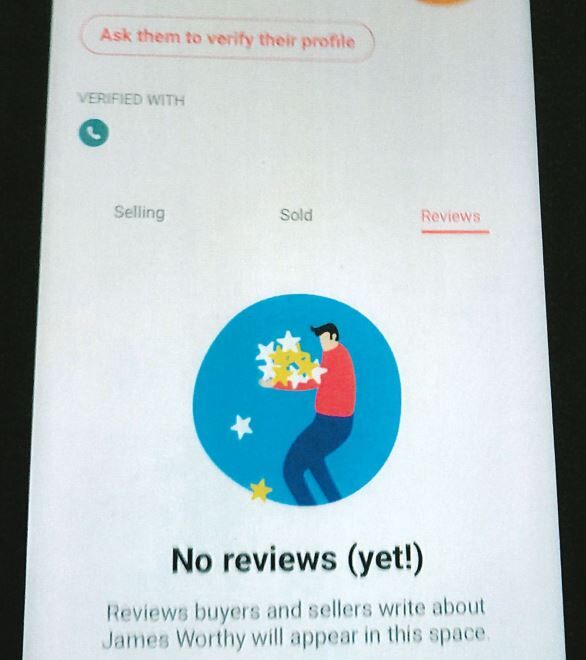App company cannot be held liable for murders of 2 users, judge finds

A federal judge ruled on Monday that the five orphaned children of an Aurora couple cannot sue an online marketplace app after one of its users murdered their parents during an intended transaction.
In August, an Arapahoe County jury convicted Kyree Brown of killing Joseph and Jossline Roland in August 2020. The husband and wife had responded to an advertisement for a used vehicle Brown placed on Letgo, a buying-and-selling app similar to craigslist or eBay. Brown instead tried to rob the Rolands, and then gunned them down.
Madison Roland, the couple’s now-adult daughter, and her four minor siblings filed suit this year against Letgo and its current owner, OfferUp, Inc. The lawsuit essentially accused Letgo of negligently standing by while Brown lured the Rolands to their deaths, permitting Brown to advertise himself as a “verified” seller on the app who was implicitly trustworthy.
But U.S. Magistrate Judge Michael E. Hegarty, while acknowledging the “shocking and heartbreaking” circumstances of the double homicide, dismissed the case after finding the Rolands’ children had not offered a plausible claim of liability under Colorado law.
“Plaintiffs have not cited a single case in which a court held an internet platform potentially liable for violent criminal acts perpetrated by a platform user who lured an innocent consumer into a scheme through means of misrepresentations made by the criminal,” Hegarty wrote in a Dec. 5 order.
The case also implicated a provision of federal law known as Section 230, which provides immunity for online platforms that simply host content created by third parties.
As described in the lawsuit, Brown, then 18, created a Letgo account under the false name “James Worthy.” He did not have a “verified user” badge, which users could earn when they accumulated 50 points through a variety of verification mechanisms, including completing their online biography, going through their Facebook or Google account, or uploading a profile photo. The profile of Worthy instead showed he was “verified” with only a phone number.
Joseph Roland corresponded with Brown over the app to purchase a used Toyota RAV4 for $3,000, which, unbeknown to Roland, was stolen. On Aug. 14, 2020, the Rolands met Brown at a shopping center after 11 p.m., with Jossline Roland intending to drive the RAV4 home following the purchase. After arriving, Brown invited them to drive to his home so he could provide them with the correct title.
At the new location, Brown attempted to rob the Rolands at gunpoint. He then shot them and fled with the $3,000 in cash. Both Joseph and Jossline Roland were pronounced dead that night. Reportedly, Brown set fire to the RAV4, but shortly afterward launched another fake profile on Letgo to attempt to sell it again.
Jurors convicted Brown of multiple serious offenses, including arson, aggravated robbery and murder. Meanwhile, the civil lawsuit from the Rolands’ children and the representatives of their estates claimed Letgo was liable for negligence, deceptive practices and the Rolands’ wrongful deaths. The allegations centered around the “verified” label attached to Brown’s account, and the Rolands’ alleged reliance on the safety of that designation.
“Defendants encouraged Letgo users to trust its ‘verified sellers’ even though Defendants knew all that is required to be ‘verified’ under its policies is a functioning email address,” wrote attorney Nathan T. Mattison for the plaintiffs. “Defendants induced Letgo users to believe a verification process is undertaken. These material and false representations were untrue, deceptive, and misleading.”
In response, Letgo argued multiple theories for why it could not be held liable. It first observed that Brown’s profile page made clear that he had not accumulated the 50 points needed to receive a “verified user” badge, and instead contained the true statement that Brown had verified his account solely with a phone number.
Letgo also claimed it was entitled to immunity under Section 230 of the Communications Decency Act, a 1996 law that, among other things, prohibits online platforms, including social media giants Twitter and Facebook, from being held liable for the content of their users.
It was clear, the company argued, “that everything that was allegedly misleading about that profile and ad was created and developed entirely by Brown himself.”
Letgo cited a 2008 decision from the New Orleans-based U.S. Court of Appeals for the Fifth Circuit, which held that Section 230 blocked social network Myspace from being held liable for negligence when a 19-year-old man sexually assaulted a 14-year-old girl he met through Myspace.
The Rolands’ children countered that their lawsuit was more similar to a 2009 case out of the U.S. Court of Appeals for the 10th Circuit, which covers Colorado. In that instance, the appellate court found Section 230 did not immunize an online company that created research reports for customers based on illicitly-acquired consumer data.
By advertising Brown’s profile as being “verified” with a telephone number, the plaintiffs argued Letgo had created its own content, independent of anything Brown had written through the app.
Hegarty, in his analysis, acknowledged the competing decisions other courts had reached in questioning the degree to which online platforms actually create or develop their own content when they “verify” material. Ultimately, he concluded Letgo was not entitled to immunity based on the allegations, as the “verified” label amounted to some degree of “platform-authored content.”
However, the magistrate judge otherwise concluded the Rolands’ children had not advanced a plausible legal claim. In order to find Letgo was negligent, the company needed to have a legal duty to the Rolands in the first place. Hegarty noted the Colorado Supreme Court has recognized certain relationships that give rise to such a duty, including an employer to an employee or a hospital to a patient.
An app and an app user were not on the list.
Nor had Letgo seemingly engaged in deceptive practices by misrepresenting what its verification process entailed. To the contrary, Letgo’s terms advised users to meet in “busy public places” during transactions for safety reasons.
“It is clear from the record that there is no factual basis for alleging that Letgo knew anything in the Brown ad was a lie, or that it acted recklessly or willfully, intending to induce the Rolands to transact with Brown,” Hegarty concluded.
Neither the lawyers for the plaintiffs nor for the defendants responded to emails seeking comment.
The case is Roland et al. v. Letgo, Inc. et al.














